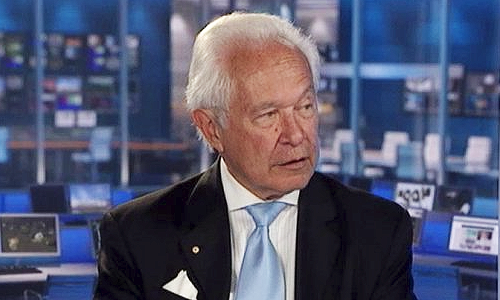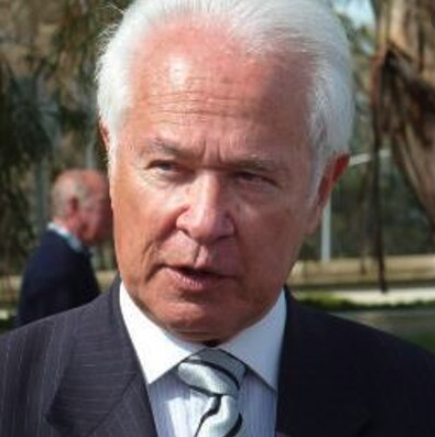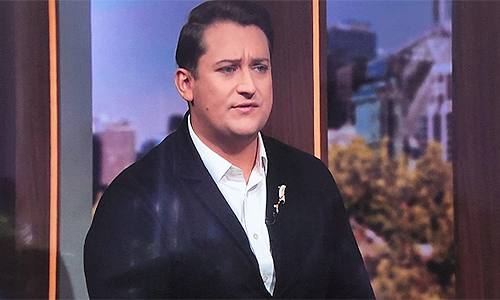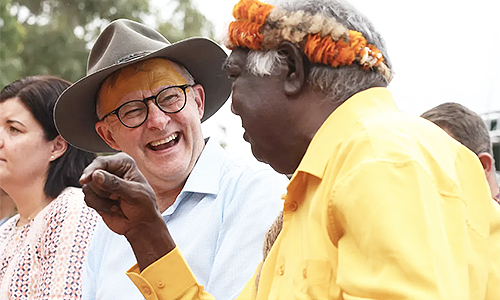
by DAVID FLINT – IF THE Voice were constitutionally enshrined, not only would we risk making the country ungovernable, but we would also fail to “close the gap”.
On past experience, as previously argued here, we would only make matters worse.
- Emotions can affect even a referendum vote.
- It is crucial for a strong and continuing argument that the Voice will do nothing about the “gap”.
- Corporate intervention, legal activism and woke sports’ support of Yes is a positive for the No case – if properly framed.
The media is replete with advice about how the referendum will be won or lost.
It is curious that only now has any commentator spoken with Australians for Constitutional Monarchy, the one organisation with national experience not only in winning a referendum, but one against the odds and by a landslide.
EXAMINATION
Fred Pawle, the energetic commentator on ADH.TV, has just put me through a thorough cross-examination.
Just as he did recently over the charge that King Charles risks politicising the Crown. On behalf of HM, I pled “not guilty”.
While I was in 1999, as now, national convener, (preferred to “president”) of ACM, the real credit belongs to ACM’s foot soldiers.
They were the nearly 60,000 who fought fiercely to retain the Australian people’s chosen constitutional system, one which makes us one of half a dozen or so of the world’s oldest continuing democracies.
Unlike the republican movement, those foot soldiers were ACM’s own and not borrowed.
The credit also belongs to the brilliant strategists who served on ACM’s central command. Together they ran a military-style campaign delivered, not so much by orders but, more often, by discussion and consensus.
There are differences today.
The technological changes in the media and in the make-up of the population may change tactics, but will not change the founders’ ultimate test.
This is that while the Constitution is not set in aspic, proposed change must be delayed until what can be called the “Federation Standard” is satisfied. This is that there be strong evidence that any proposed change is “desirable, irresistible and inevitable”.
ONUS
The onus is on nobody else but the Albanese Government to provide this strong evidence which they are failing lamentably to do. As Alan Jones famously and 100 per cent correctly re-iterated almost daily in 1999, “If you don’t know, vote No”.
Two crucial differences from 1999 are being overlooked today in the media.
First, John Howard, working with Nick Minchin, presented a gold-standard regulatory, level playing field.
The second explains why Julian Leeser must go to the back-bench. The Liberal Party had no position on the 1999 referendum. It is now clearly in the No camp.
It is elementary that a minister (or shadow) cannot go against the Party’s policies on such matters as degradable plastic bags or degendered public lavatories, much less the Voice. This is central to cabinet governance under the Westminster system.
The Liberal Party can hardly be criticised for observing this especially when the ALP, unlike British Labor, still practises Bolshevik-style democratic centralism by gagging the dissent of even the lowliest backbencher.
Being neutral in and enabling a referendum was the stylishly magisterial way Alexander Downer and John Howard completely neutralised Paul Keating’s attempt to use “the” republic as a wedge.
This only worked when gullible and/or opportunistic Liberal politicians swallowed the line that “the” republic was inevitable.
Meanwhile, high standards were assured when seven prominent Australians, two indigenous, formed an intentionally broad-based ACM.
Wisely, Justice Michael Kirby drafted a charter setting out a minimal core belief along with optional views, eg, that we are already a republic, a “crowned republic”.
Crucially, ACM would operate on the basis that they must never forget traditional Labor voters, who unlike ambitious politicians, are not in the slightest concerned with what is in the Party platform, such as some sort of republic.
ENTRENCHED
The danger with the Voice is that with the Coalition strongly entrenched in the No case, traditional Labor voters could feel discouraged from voting No which will, for many, be their natural home.
While the Yes vote belongs to the elites, there is also the danger of a leakage to Yes out of emotional sympathy for indigenous Australians over the “gap”, exacerbated by the fabrication of much of Aboriginal history.
That is why it is crucial for a strong and continuing argument to be made that the Voice can and will do nothing about the “gap” and indeed, will make it worse.
Emotions can affect even a referendum vote. In an interview with Nigel Farage on ADH.TV, I revealed my fear in 1999 of a similar emotional vote arising out of the contrasting treatment at Heathrow of former enemies and Australians, especially those whose family had served in the war.
Fortunately, with Brexit, that is in the past.
In the final analysis our 1999 call not just to vote No, but to vote No to the “politicians’ republic” was crucial.
Australians correctly smelt the very big rat which is behind every republican model the ARM releases. (There have been three, one a decade.)
The ARM’s referendum national campaign director, lawyer Greg Barns SC admitted last year that this was the most damaging of arguments.
The Voice campaign today must reach, as we did in 1999, into every electorate. Indeed in one State, on strategic advice, we reached into the even smaller State electorates.
WON
That worked well. We won all States.
The No case today is politically stronger. In 1999, the only federal Party supporting the No case was the National Party, today the Liberals have joined them.
The mainstream media were more biased, but big business had the good sense then not to come out. Big sport had not yet been corrupted.
Today, the lawyers are vocal in their support of the Voice, a good thing because it is rolled gold for the No case. That has to be featured in their advertisements.
As in 1999, the media is in the Yes camp but with less hysteria. Perhaps older hands have warned about going too far.
What will be revealing will be the extent the soi-disant fact-checkers take over the regulation of the social media as they did during COVID.
At least this time, they have no need to protect Big Pharma’s massive profits.PC













The electorate has shifted.
The voice will be overwhelmingly endorsed, just as marriage equality was, just as the conservative political wing has been relentlessly thrashed in every recent election.
That old white monarchist men such as flint still refuse to believe it – and still cling to the colonial mono culture of the 1950s- will make it even more delicious.
Noel as you must realise a primary vote is a voter’s first choice of candidate.
Preferences trickle down like a lottery system and for most voters preferences are allocated following the how to vote cards handed out at polling booths and distributed with election campaign material. In my opinion Australia should adopt the UK first past the post voting system and not have preferential voting. Too often here a candidate who was not the first choice of most voters fails to win the seat.
At the May 2022 Federal Election according to the ALP Election Report on line Labor received their worst primary vote result since 1934. The Coalition did better than Labor by a couple of per cent. Combined the major parties polled less than 70 per cent of the vote.
Same Sex Marriage postal ballot was supported by 80 per cent of voters and of that 80 per cent the yes vote was slightly above 50 per cent. Most eligible to vote did not therefore support SSM.
Voice will be a ballot box referendum and support is already declining, the latest Morgan Gallop Poll was published in April 2023, check it out, thankfully voters are waking up to the political agenda and the race based dividing of our multicultural nation and as Tony Abbott and others have warned, risk regular High Court intervention in our parliamentary process. The Aboriginal Activists want a lot more than a new Voice – ATSIC revival – and as the Minister Linday Burney has commented on SBS and other media the objectives are;
* Voice
* Treaty
* Truth
Truth telling includes handing “back” sovereignty of our nation to the “First Nations peoples”, but most Australians who claim to have Indigenous ancestry also have ancestors from 1788 and after British Empire Colonies were established, not Australian Aborigines. And if there are “First Nations” consisting of “300-plus countries that have survived in Australia”, what are the Second Nations and why would they be?
And with due consideration for the evasive tactics Albanese Labor are indulging in with Voice, refusing to release the details or the original Solicitor General’s legal advice, trying to fool voters by claiming that a yes vote would be “Recognition”. Voice is about politics and power, recognition of the history of the people who lived on this country before 1788 as a brief note inserted into the Constitution, no strings attached, is a separate matter.